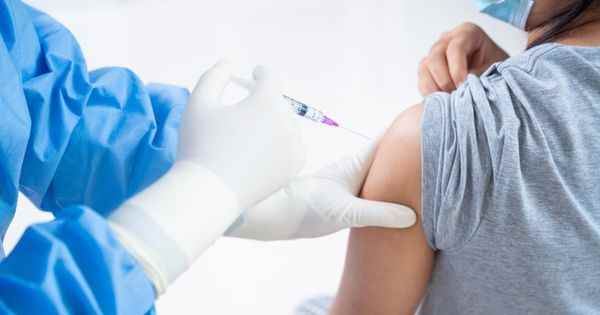Posted ,
Reading 2 mins.
According to a study conducted by American researchers in Boston, the adverse effects of vaccines are due in three quarters of cases to the nocebo effect, the negative counterpart of the placebo effect. Explanations.
The nocebo effect, what is it?
In medicine, the placebo effect is well known, although its mechanism is poorly understood. It is about the positive effect that a fictitious treatment, based on sugar or salt water for example, will have on the person who takes it. With real physical or mental improvement. For the nocebo effect, it’s the opposite. This is a feeling of symptoms and undesirable effects following the taking of a fictitious treatment, which is in reality only a saline solution, for example.
A meta-analysis of Covid-19 vaccine trials, published in the Jama Network Open January 18, 2022 compares the rates of adverse events reported by participants who received the vaccine and those who instead received a placebo injection, containing no vaccine. The aim is to observe the differences in feeling in terms of side effects (fever, headache, fatigue, redness/swelling in the arm, etc.) in the two groups of patients.
Adverse effects in both groups
According to the researchers, who looked at the results of this study including more than 22,000 patients in each group, divided into 12 randomized trials: “Many trial participants who received the vaccine complained of adverse effects, but also those who received the placebo, to a lesser extent..
The final analysis of their results would show that the nocebo effect represented, for the first vaccine dose, 76% of all adverse events in the vaccinated group and almost a quarter of all local effects reported. And for the second dose, the researchers calculated that the nocebo accounted for almost 52% of the reported side effects.
Although the reason for this relative decline in nocebo effects cannot be confirmed, the researchers believe that the higher rate of adverse events in the group vaccinated the first time around may have led participants to be more anticipatory the second time around.
Consult a GP online
Vaccination brake
“Adverse events after placebo treatment are common in randomized controlled trials”, said the study’s lead author, Dr. Julia W. Haas, a researcher in the Placebo Studies Program. “Collecting systematic evidence regarding these nocebo responses in vaccine trials is important for COVID-19 vaccination globally, particularly because concerns about side effects are believed to be a reason for vaccine hesitancy.”.
One of the other researchers stresses the importance of trust between patient and caregiver in medicine, adding that the results of this study suggest “that informing the public of potential nocebo responses could help reduce concerns about COVID-19 vaccination, which in turn could reduce vaccine hesitancy” he concludes.
